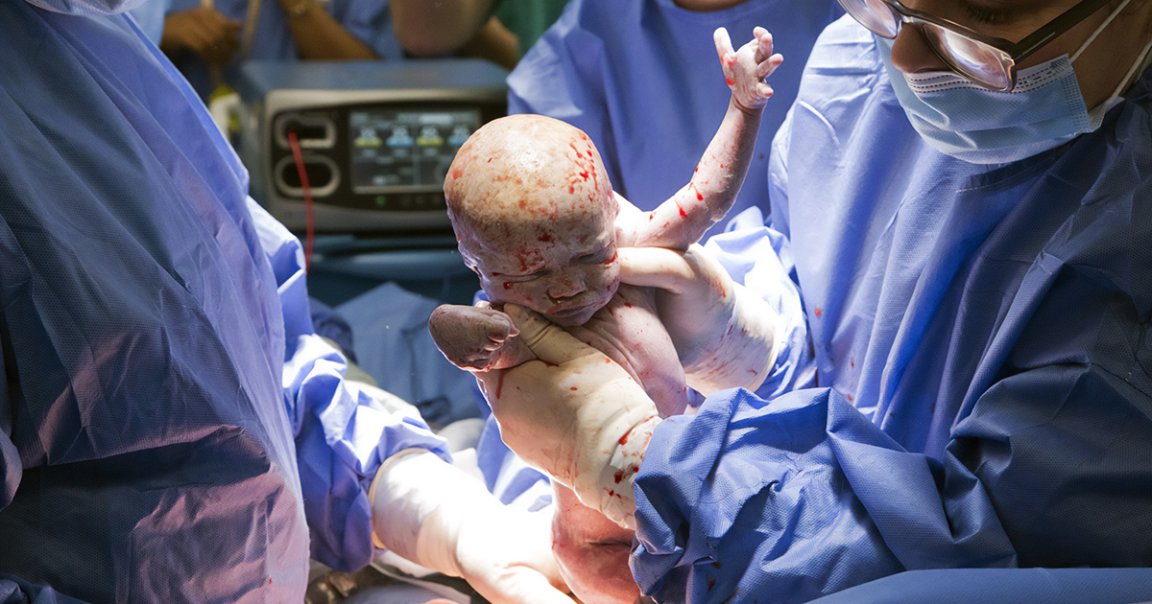
In Scotland, a woman successfully gave birth to a baby girl after getting a womb transplant from her sister.
As the BBC reports, couple Grace and Angus Davidsin welcomed baby Amy after the mother’s sister, for whom she named her new child, donated her womb.
Though it wasn’t the first in the world — that took place over a decade ago in Sweden — the birth of baby Amy was the first time in the history of the United Kingdom in which such a feat has been achieved. During the ensuing ten years, doctors have successfully carried out 135 uterine transplants, and 65 babies have been born from the difficult procedures.
Born with a rare genetic disorder called Mayer-Rokitansky-Küster-Hauser syndrome, in which people are born either with non-functioning wombs or without them entirely, 36-year-old Davidson — along with her sister, Amy Purdie — had been trying to assess whether the feat was feasible for years. Though the initial transplantation was set to take place in late 2019, the surgery was delayed — and once the COVID-19 pandemic began, it became unclear, the BBC notes, if it would happen at all.
Finally, the complex transplant process — which involved more than 30 doctors and took 17 hours as they removed Purdie’s uterus and implanted it inside Ferguson — took place in February 2023. Though it was technically a hysterectomy, or uterine removal, Purdie told the BBC she didn’t feel the same sense of loss some women feel upon getting that procedure.
Despite the risks involved for both sisters, transplant surgeon Isabel Quiroga of Oxford’s Churchill Hospital said the procedure she led was both “life-enhancing and life-creating — and you can’t have better than that.”
Just a few weeks after the successful transplant, Davidson had her very first menstrual period. It wasn’t much longer until she and her husband Angus attempted in-vitro fertilization, and got pregnant on their very first try.
On February 27, 2025 — almost exactly two years to the day since her transplant — Davidson gave birth to baby Amy.
“I’m not often short of words, but when the baby came out, I was speechless,” enthused Richard Smith, an Imperial College London gynecological surgeon who worked on Davidson and Purdie’s transplant, in an interview with the BBC. “There were a lot of tears in the theatre that day. The whole thing is astonishing and incredibly moving.”
The Davidsons are, as they told the British broadcaster, already considering a second child as soon as Grace’s medical team gives them the go-ahead.
If she does have that second baby, however, it will have to be the last to whom Davidson gives birth. As Quiroga explained to the BBC, the donated womb will need to be removed after Davidson has a second child because the daily immunosuppressants she takes to make sure her body doesn’t reject the foreign uterus carry the risk of developing cancer when taken for years at a time.
Still, it’s clear that this transplant and its “little miracle,” as the Davidsons call their new baby, has had a profound impact on the couple. The first time they got to hold baby Amy, as the mother put it, it was “quite overwhelming.”
“We’d never really let ourselves imagine what it would be like for her to be here,” she said. “It was really wonderful.”
More on babies: Scientist Who Gene-Hacked Human Babies Says Ethics Are “Holding Back” Scientific Progress